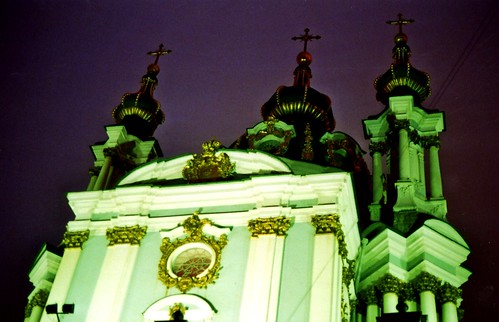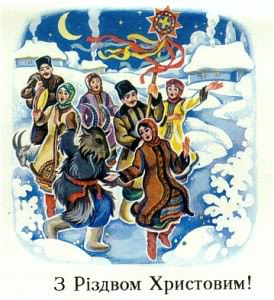(Läsningstid: 4 minuter)viewpoint-east.org begins the new year with its fist guest author, Dmytro Yatsyuk. The article is about Ukrainians in Mozambique. Enjoy!
Early Ukrainian connections with Mozambique
One of the first people with a Ukrainian connection to settle in Mozambique was Leo Kröger. The son of a Ukrainian mother and German father, he was born in 1912 in Khabarovsk. His Ukrainian grandfather, Arseniy Shvorin, was a teacher in Kyiv. Arrested by the tsarist police for his participation in a populist political movement, he was deported to Russian Far East. After a long and very interesting life in China, Leo Kröger in 1954 moved to Mozambique with his family, where he pursued a career as a professional hunter. He died in 2004, just two months short of his 92nd birthday. The funeral service took place in the Greek Orthodox Church in Maputo.
Ukrainian businessman Mihaylo Tereshenko, the Minister of Finance in Kerensky’s Russian democratic government (1917), came to work in Mozambique in the mid-1950s. He worked for the Norwegian-owned company “Madal,” which was nationalized after 1975 and eventually collapsed.
There was also Pravda foreign correspondent Tomas A. Kolesnichenko (1930–2003), who, after receiving an invitation from the oligarch Jorge Jardim, an engineer and trusted friend of Portugal’s António O. Salazar, visited Mozambique at the beginning of 1960.
Also noteworthy is the 1997 visit to Mozambique of Miguel (Mihaylo) Guskow, the Vice-General Attorney of the Federal Public Ministry of Brazil. Mr. Guskow is the son of Oleksiy and Hanna Guskow, Ukrainians who immigrated to Brazil from the Odesa region of Ukraine.
Igor Sikorsky, a grandson of the famous Ukrainian helicopter inventor Ihor Sikorsky, also made Mozambique his short-term home. His business activities were related to the fishing industry.
First Mozambicans in Ukraine and first Ukrainians in Mozambique
Following an agreement between the Soviet government and the FRELIMO (Mozambican Liberation Front), the first Mozambicans came to Ukraine in the middle of the 1960s to obtain higher education. In 1964–71, António Lourenço Chade represented FRELIMO in Ukraine. Today he is an important Mozambican judiciary figure in the northern province of Nampula. Several of the Mozambican students married Ukrainian women, some of whom stayed in Ukraine while others moved to Africa. The latter included the Kyiv-born painter Maria Smoliar (artistic name: Maria Cenzani). Together with her husband Dr. Chicogo, she lived in several African countries before moving to Mozambique following its proclamation of independence in 25 June 1975. In 1990 Maria Smoliar won a prize in Japan at an art contest dedicated to ecological issues. Representing Mozambique, she sent a painting on the topic of the Chornobyl nuclear disaster.
The contemporary Ukrainian community in Mozambique
Today, the Ukrainian community of the country is made up of three different groups of citizens: medical personnel, university teachers, and women who married Africans and chose to live in Mozambique.
There are about 400 Ukrainians living in Mozambique (adults and children). The majority of them are the Mozambique-born or Ukraine-born offspring of African–Ukrainian marriages. In the last five years, several Ukrainians employed as medical personnel have left Mozambique because of the unfriendly political attitude of the Minister of Health, Dr. Ivo Garrido.
There are no officially registered Ukrainian community organizations in Mozambique. The majority of Ukrainians in Mozambique are Orthodox, and they attend the Greek Orthodox Church of Archangel Gabriel in Maputo. Until January 2007 a Ukrainian priest, Fr. George Zolotenko, served there; he is currently studying at the Ecclesiastical Academy in Greece.
There is no Ukrainian diplomatic representation in Mozambique. The closest Ukrainian Embassy is situated in Pretoria, South Africa, though Ukrainian citizens in Mozambique are served by the Ukrainian Embassy in Angola because Portuguese is the official language in both these two countries.
Political life in Mozambique
Mozambique is dominated by two political parties, the FRELIMO ruling party and the former anticommunist guerrilla movement RENAMO (Mozambican National Resistance).
The President of Mozambique is a FRELIMO candidate, Mr. Armando Emílio Guebuza. In the 1960s he received military training in Ukraine, at the 165th Training Center for Foreign Military Personnel, in the village of Peravalne, 20 kilometres outside of Simferopol. President Guebuza remembers his time in Ukraine with fondness and has not ruled out the possibility of visiting Ukraine and his old training center. These very facilities are now used by the 36th Special Brigade of the Coast Defense of the Ukrainian Naval Force and units of the National Guards of Ukraine.
First Ukrainian blog in Africa
Our blog was created on 15 January 2004, during the Orange Revolution, when we started to inform Portuguese-speakers in Angola, Brazil, Guinea-Bissau, Cape Verde, Mozambique, Portugal, East Timor, and Macau about events in Ukraine. This information was distributed as press releases in Mozambique, Portugal, and Brazil. As of 28 December 2009 our blog has been visited by almost 180.000 people.
••••
Blog’s address ucrania-mozambique.blogspot.com
Our blog also acts as a cultural bridge between Mozambique and Ukraine. And we interact with Ukrainian Web groups in Portuguese-speaking countries, among them pessoal.cefetpr.br/ucrania, which was created by fourth-generation Ukrainians in Brazil, and spilka.pt, the Web site of the Association of Ukrainians in Portugal.
••••
NOTE
This article first appeared in “Ukrainians Abroad: News and Views’ #40”, the newsletter of the Ukrainian Diaspora Studies Initiative at the Canadian Institute of Ukrainian Studies, University of Alberta.







